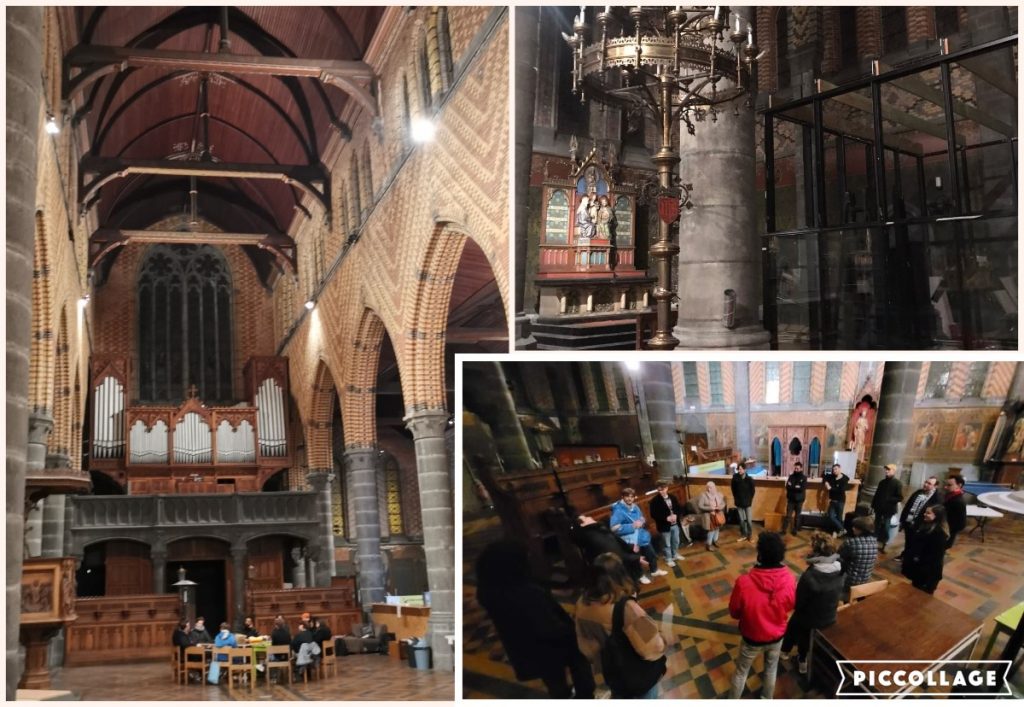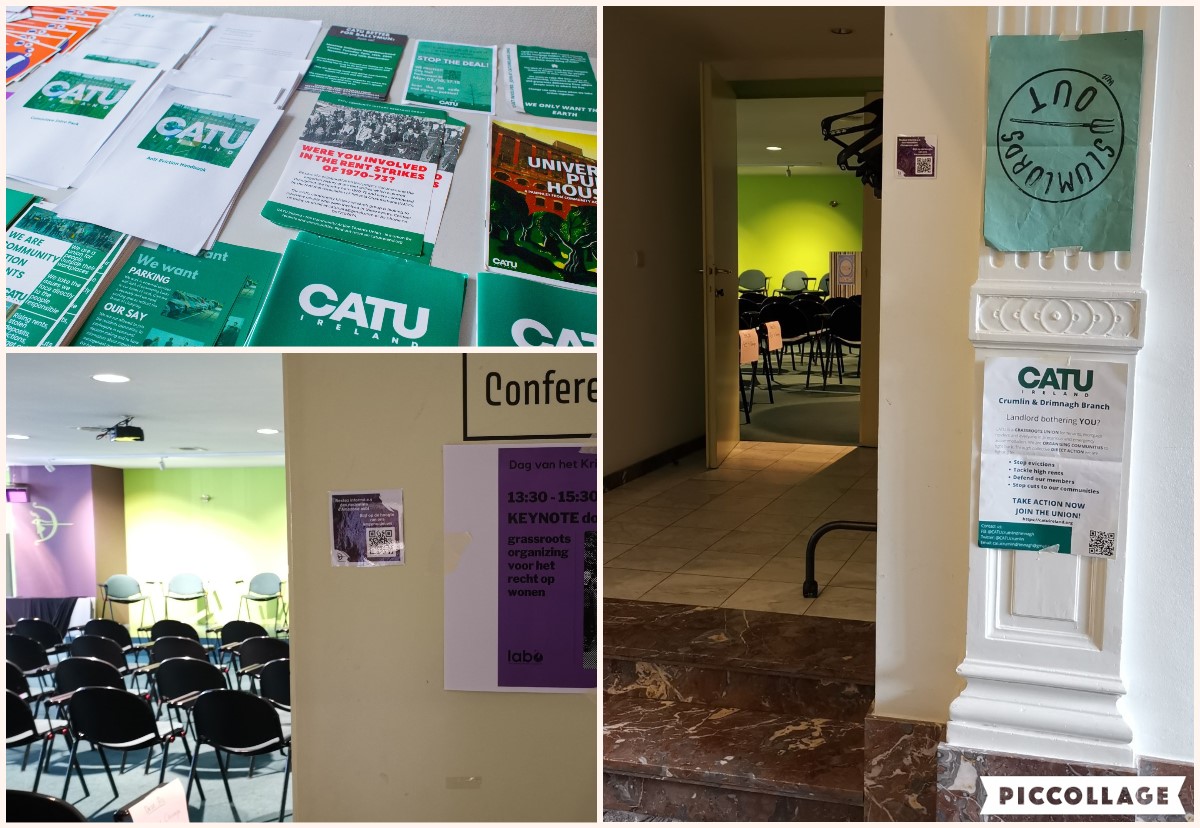
We could only fit two James Connolly quotes in our slides after all.

We were invited over by LABO (An abbreviation of laboratory and acronym in Dutch: Learning, Acting, Moving and Organising) a community training group and ‘social action stimulator’, to be keynote speakers at their Critical Citizenship Day event.
The evening prior, LABO took us to the city of Ghent, a 30 minute train away, to visit a council-backed occupation of an abandoned Catholic Church. Following dwindling attendance, the Church of St Joseph had been sold to the City Council, who then granted temporary usage rights to OCUP. This staffed housing group then offers up the space to local community projects, clubs, events and activities. They have the space (and its massive basement) for the next number of years and will oversee its construction/development, all while ensuring the artistry on the walls remain undamaged due to its protected status.
During a walking tour, the organiser highlighted the importance of selecting their collaborators, which both aligned to their values and accommodated their ‘pay what you can’ policy. They stressed the importance of prioritising local people/groups and gave a nod to previous projects where collaborators took advantage, or in reality came from a background of privilege they weren’t letting on.

However, a question arose concerning the intentions of Ghent’s City Council. Are their funds to prevent squatting, occupations or more radical forms of community action? Whatever it was, we know it’s better than what Irish cities currently endure.
We’re all looking at churches differently.

Meeting a cohort of activists for beers and chips in the church had its educational benefits. We assumed, as CATU had copied its structure/tactics from Irish/UK trade union groups, that a potential Belgian tenants union could do the same using their own unions – not quite. Belgium has 3 unions (Socialist, Christian and Liberal – ‘The Three Pillars’), without autonomy as they each work in hand with a parliamentary party, no system of efficient democracy or raising motions through different committees and tied into an ‘unemployment registry system’ – so their funding is somewhat in the hands of the government.
So the unions have an impressive amount of members, but I was told that they’re in the process of firing staff because of government funding changes.
THE LANDLORD
The much joked about ‘CATU Brussels Branch’ had some difficulties ahead alright. This culture of symbiosis and state-dependent-radicalism may contribute to how our Q&A session went.

We put together a presentation for a room of 30-50 people, celebrating CATUs work and discussing its history. Afterwards, we were asked about typical organisational ‘pitfalls’ (representation of minority groups, losing connection with the ‘base’, etc) by LABO staff, a Flemish Government supported org themselves.
A short Q&A to close mainly focused on our earlier explanation of CATU’s membership criteria. Two attendees argued for landlords to be involved in the tenants union. The sheep and the wolves sharing a bunk bed.

Because being a landlord isn’t a hobby or a job, it’s a status of power over others.
THE THANK YOU
The further time passes from the event, the less the ideological or tactical differences come to mind. The activists we met were inspiringly hard-at-work on a variety of important social and political issues and all claimed the keynote address was ‘interesting’ – take of that what you will.
The beer was good, the people friendly and the chats flowing. A particular thanks to LABO’s Matilde, Hanae and Peter Paul for their hospitality and patience.
Borrowed from LABO’s website:
What can we do today so that we can do tomorrow what is not possible today?
—Paulo Freire

*Images courtesy of CATU members Michelle Byrne and Jack Ferguson, and of LABO, Matilde De Cooman and LeontienAllemeersch_1.


